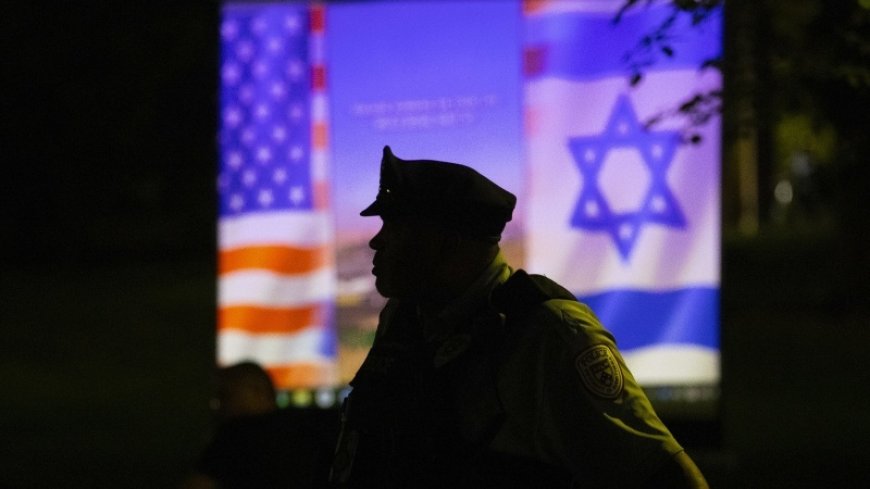Israel, the Influence of Lobbying in America, and the War of Civilizations-Religions in West Asia
The geopolitical landscape of West Asia has long been shaped by the Israeli-Palestinian conflict, with Israel attempting for decades to expand its influence and control over Palestinian territories. This expansion has often involved oppressive measures and the construction of settlements, actions bolstered by significant support from the United States and pro-Israel lobbying groups within America.

The geopolitical landscape of West Asia has long been shaped by the Israeli-Palestinian conflict, with Israel attempting for decades to expand its influence and control over Palestinian territories. This expansion has often involved oppressive measures and the construction of settlements, actions bolstered by significant support from the United States and pro-Israel lobbying groups within America.
The impact of Zionist lobbies on U.S. foreign policy is substantial and well-documented. These lobbies, far from being clandestine organizations, are transparent entities with structured leadership that actively work to align American foreign policy with Israeli interests. Among the numerous lobbying groups, the American Israel Public Affairs Committee (AIPAC) and J Street stand out as particularly influential.
AIPAC is renowned for its extensive financial resources, which it uses to support political candidates sympathetic to Israeli interests. This financial influence has yielded substantial returns; according to a report by Al Jazeera, for every dollar spent by the Israeli lobby on American elections, Israel receives $50 in aid for military and settlement construction purposes from the U.S.
J Street, while also supportive of Israel, promotes itself as a proponent of democratic values. It seeks to present a more nuanced image of the Israeli state to American policymakers and aims to gain the trust of liberal democracy advocates and human rights activists by engaging in critical discourse and proposing reforms.
U.S. Elections and the Gaza Conflict
The Israeli-Palestinian conflict continues to be a significant issue in American politics, particularly as the 2024 elections approach. The recent escalation in Gaza, which resulted in the deaths of over 39,000 Palestinians and injuries to more than 90,000, has further intensified the political debate in the United States. Despite numerous domestic challenges, including economic woes and environmental crises, bipartisan support for Israel remains a constant in American political discourse.
This unwavering support is partly rooted in Israel's historical strategic importance to the U.S., dating back to the Cold War era. Israel has long been viewed as a crucial ally in the region, ensuring American interests are safeguarded in a volatile geopolitical environment.
The Ideological Underpinnings of U.S.-Israel Relations
The U.S. support for Israel transcends mere political and economic considerations. It is deeply intertwined with religious and ideological beliefs. There are approximately 70 to 80 million evangelical Christians in America who believe in a prophetic vision that sees the return of Jesus Christ linked to a series of events in West Asia, facilitated by Zionist actions. These evangelicals anticipate a cataclysmic war between Jews and their Arab and Muslim neighbors, which they believe will lead to the destruction of the Al-Aqsa Mosque and the construction of Solomon's Temple, culminating in an apocalyptic battle and the second coming of Christ.
The Historical Context and Regional Dynamics
The modern state of Israel was established in 1948, following significant Jewish immigration to Palestine, influenced by Western powers, particularly British colonial policies. Since its inception, Israel has engaged in numerous conflicts and policies aimed at securing its territory, often at the expense of Palestinian lives and land.
The ongoing conflict has also seen strong opposition from various countries, particularly the Islamic Republic of Iran, which advocates for the dissolution of the Israeli state and the return of Jews to their ancestral homelands. Understanding these deep-seated historical and ideological factors is crucial for a comprehensive analysis of the recent escalations and the broader Israeli-Palestinian conflict.
In conclusion, the intricate web of political, religious, and historical influences continues to shape the volatile dynamics in West Asia. As the world watches the unfolding events, the role of U.S. foreign policy, heavily influenced by pro-Israel lobbies, remains a pivotal factor in the ongoing struggle for power and peace in the region.













































